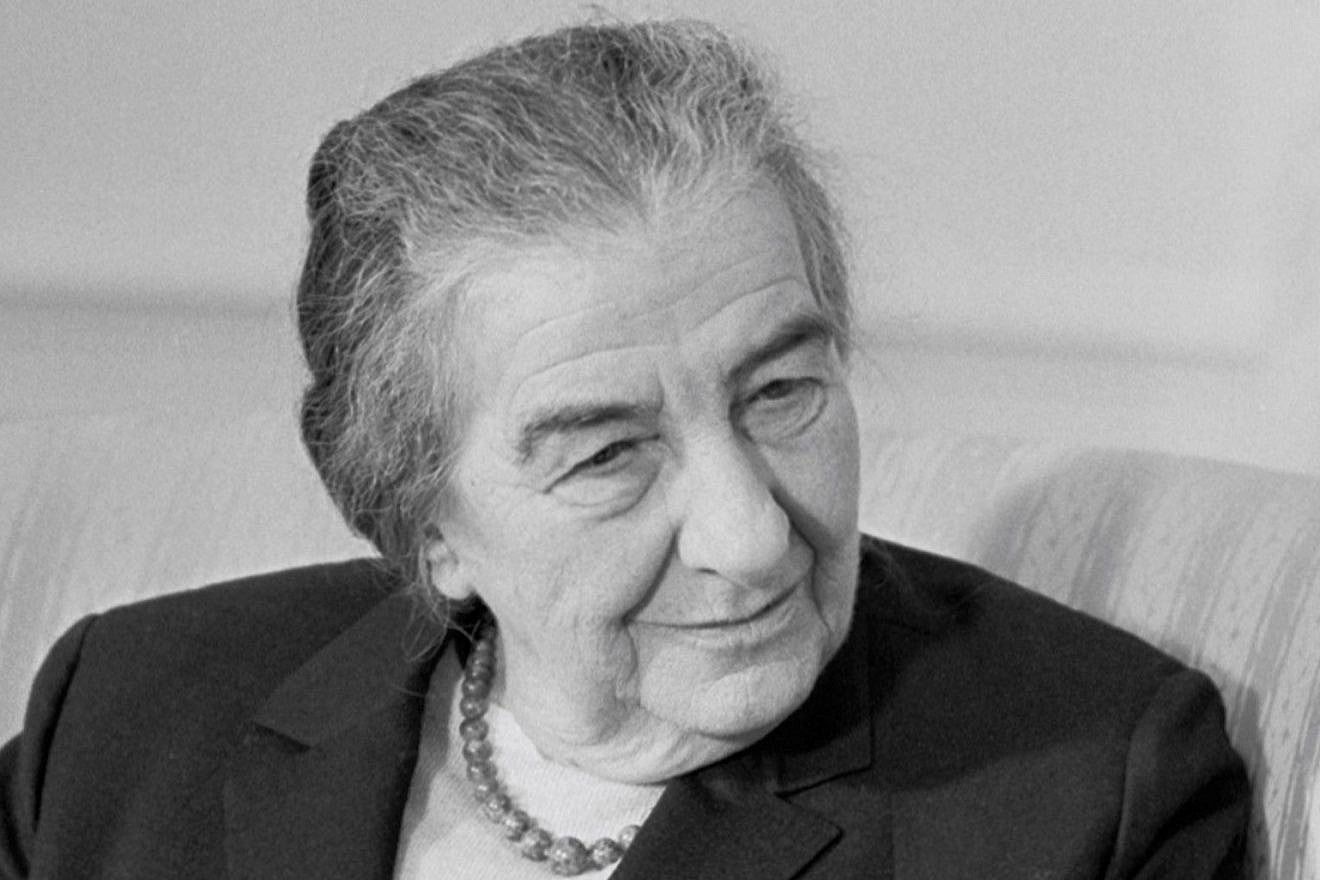
Golda Mabovitch was born in Kyiv, in what was then Russia on May 3, 1898, to Moshe Yitzhak and Bluma (Neiditch) Mabovitch. Five siblings died in childhood; she and two others, Sheyna and Zipke, survived into adulthood.
During her lifetime, she’d become the Middle East's first female head of state, one of the signers of Israel's Declaration of Independence and was Prime Minister of Israel from 1969 to 1974.
The family fled Jewish persecution and moved to Milwaukee in 1906. When in 1908, the Milwaukee School Board announced plans requiring brand-new textbooks, Golda Meir helped form a club to raise money to help families buy schoolbooks. They rented a hall and put on a fundraising show; Meir made a speech and recited two Yiddish poems.
In 1917, she became a naturalized U.S. citizen. Influenced by her Zionist activism, she was determined to move to Palestine. The Zionists thought that Jews could solve their problems by moving to the Promised Land endowed by God, thought to be Palestine.
Jews trace their heritage to Isaac and his two sons, Jacob and Esau. Jacob's name was later changed to Israel, as such the Jews are called the sons of Israel. Israel fathered twelve sons, each of whom founded one of the twelve tribes of Israel: Reuben, Simeon, Judah, Issachar, Zebulun, Benjamin, Dan, Naphtali, Gad, Asher, Ephraim and Manasseh.
The Arab people trace their heritage to Ishmael and his twelve sons, though the religion followed by most Arabs today, Islam, was not established until the birth of the prophet Muhammad.
On May 23, 1921 Golda and her husband Morris Meyerson, described as a quiet, bespectacled sign-painter who loved poetry and music, set sail about the SS Pocahontas and moved to Palestine. Landing in Alexandria, Egypt they boarded a train to Tel Aviv, Egypt, where they lived in a kibbutz – a basic form of communal life – before settling in Jerusalem.
Palestine was not an empty land waiting for the Jews to return. It was occupied by thousands of Arabs who had borne the rule of the Ottoman Empire for centuries.
In 1948, she became Israel’s first Minister to the Soviet Union. The ministry lasted seven months, and she returned to Israel in 1949 to become Minister of Labor. In 1956, she became Foreign Minister, the second-highest position in the government, and served in this capacity until her retirement in 1965. Meir changed her name from “Meyerson” to “Meir” in 1956.
After Prime Minister Levi Eshkol died unexpectedly in 1969, Meir was elected leader of Israel's Labor Party and became the country's fourth prime minister, the third woman in the 20th century to emerge as a leader of a nation.
In June 1969, on the two-year anniversary of the Six-Day War, Meir stated in an interview that there was no such thing as Palestinians, a comment later described as "one of her defining – and most damning – legacies."
The interview entitled Who can blame Israel was published in The Sunday Times on June 15, 1969, and included the following exchange:
- Frank Giles: Do you think the emergence of the Palestinian fighting forces, the Fedayeen, is an important new factor in the Middle East?
- Golda Meir: Important, no. A new factor, yes. There was no such thing as Palestinians. When was there an independent Palestinian people with a Palestinian state? It was either southern Syria before the First World War and then it was a Palestine including Jordan. It was not as though there was a Palestinian people in Palestine considering itself as a Palestinian people and we came and threw them out and took their country from them. They did not exist.
Her time in office encompassed a tumultuous time in Israel's history, including the massacre of 11 Israeli athletes by Palestinian terrorists at the 1972 Munich Olympics and the 1973 Yom Kippur War, launched as a surprise attack by Egypt and Syria on October 6, 1973. Israeli forces were able to regain the offensive, they suffered more than twenty-seven hundred casualties.
One of her biggest fights was to institute a regular tax to be paid by everyone who was working, even if they had low-paying jobs. The revenue would be used to support people without jobs. She managed to establish an unemployment fund called Mifdeh, or "redemption," which provided support for many families.
Meir resigned in 1974. She died in 1978 of lymphatic cancer at age 80. It's said that one of her regrets is that she had not followed her instincts to call up the reserves days ahead of the Yom Yippur War, rather than heeding the advice of military intelligence experts who saw no reason to mobilize.
“The thing that mattered most in my life was that if a thing has to be done, you don’t waste time with theories and debates. You just do it.”
Like this post? Stop by and read ”Indira Gandhi: India’s First Woman Prime Minister.” Indira Gandhi was sworn in as India’s third prime minister and its first woman prime minister on January 24, 1966.
I'd love to have you as a customer, head to the online store and shop for handcrafted beaded jewelry by beYOUteous.
Leave a comment